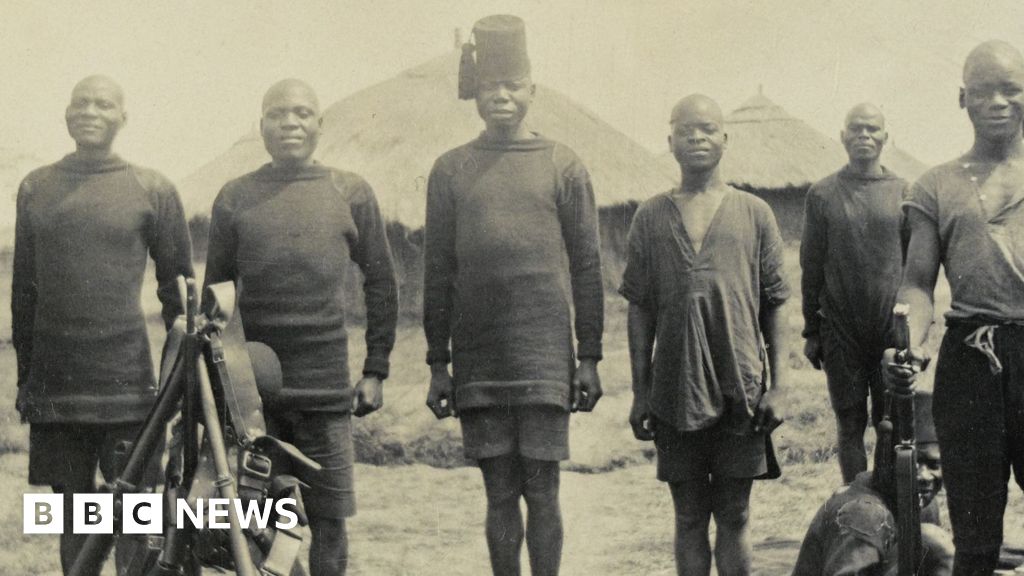Trove of records reveals Kenya's forgotten World War soldiers

```html Kenya's Forgotten World War Soldiers: Trove of Records Unearths Untold Stories
Thousands of Kenyan soldiers who fought for the British Empire during the two World Wars have remained largely unacknowledged, their sacrifices omitted from mainstream historical narratives. Now, a newly discovered trove of colonial military records is shedding light on their service and offering closure to families who have long sought answers about their loved ones' fates.
Lost to History, Found in Archives
The Commonwealth War Graves Commission (CWGC), in collaboration with the Kenyan Defence Forces, unearthed the records, thought to have been destroyed, revealing the names and stories of over 3,000 soldiers who served in the King's African Rifles, a regiment comprised of East African soldiers. These soldiers fought against German forces in East Africa during World War One and Japanese troops in Myanmar during World War Two.
For many families, this discovery marks the first time they are learning about a relative's wartime service. One such family is that of Mutuku Ing'ati, who disappeared from his village in southern Kenya roughly 85 years ago. His nephew, Benjamin Mutuku, recently learned through the CWGC that his uncle had enlisted with the East African Scouts and was killed in action on June 13, 1943. The location of his death and burial remains unknown.
A Search for Closure
"I used to ask my father, where is the person I was named after?" says Mr. Mutuku, now 67. While grateful for the information, he expresses sorrow that his uncle's body is not buried in their ancestral land, a practice deeply rooted in Akamba culture.
The CWGC is actively working to locate Mr. Ing'ati's remains and gather details about other forgotten Kenyan soldiers. This includes searching for information about East Africans who fought and died during World War One.
A Broader Historical Context
The recruitment of African soldiers into European armies during both World Wars is a complex and often controversial topic. Historians estimate that over two million Africans served in various capacities, often facing discrimination and unequal treatment compared to their European counterparts. While some volunteered, many were conscripted, highlighting the coercive nature of colonial power.
Dr. Alice Wanjiru, a historian at the University of Nairobi specializing in colonial military history, emphasizes the importance of recognizing the motivations of these soldiers. "While some were undoubtedly coerced, others saw military service as an opportunity for economic advancement or a means to prove their loyalty to the British Empire," she explains. "Understanding these diverse motivations is crucial to a nuanced understanding of this historical period."
Impact on Kenyan Society
Patrick Abungu, a historian at CWGC's Kenya office, stresses the profound impact of the wars on Kenyan society. "The narrative has always been, 'they went and never came back.' Now we are answering those questions: where they went and where [their bodies] could be," he says. Mr. Abungu's own great uncle was conscripted during World War One and never returned.
"It's very traumatic to lose a loved one and not know where they are," he adds. "It does not matter how many years go by, people will always look at the gate and hope that he will walk in one day."
Commemoration and Education
The CWGC hopes to build memorials to commemorate the thousands of soldiers identified from the newly discovered documents. They also aim to integrate these stories into Kenya's school curriculum, ensuring that future generations understand the significant, yet often overlooked, role Africans played in the world wars.
George Hay, a historian at the CWGC, emphasizes the importance of community ownership of this history. "The only way any of this matters is that it isn't coming from people like me saying, 'This is your history'," he says. "It's about people saying, 'This is our history' - and using the materials that we're working with."
An Ongoing Process
The CWGC's commitment to recovering the details of Kenyan soldiers who served in the British forces is ongoing. "There is no end date... I mean this could go on for 1,000 years," Mr. Abungu states.
"The process that is taking place is ensuring that those thousands of people who went away and never came back... we keep their memories going so that we don't forget them."
Dr. Kwame Nkrumah, a research fellow at the Institute for African Studies, adds that this effort is crucial for decolonizing historical narratives. "For too long, the contributions of Africans in global conflicts have been marginalized or ignored," he argues. "This initiative by the CWGC is a step in the right direction, but it must be accompanied by a broader effort to challenge Eurocentric perspectives and center African voices in the telling of their own history." ```
Originally sourced from: BBC News Africa
